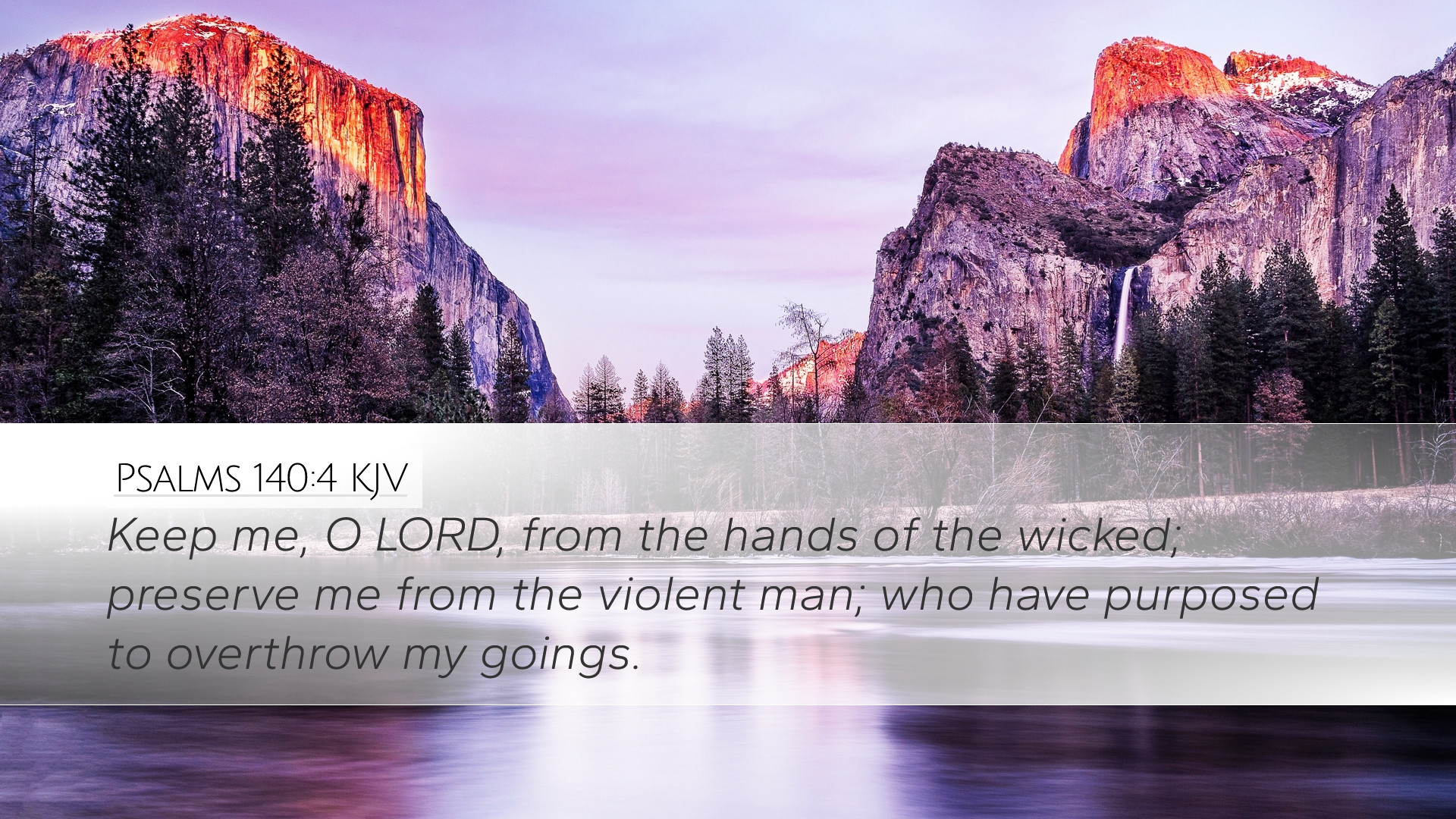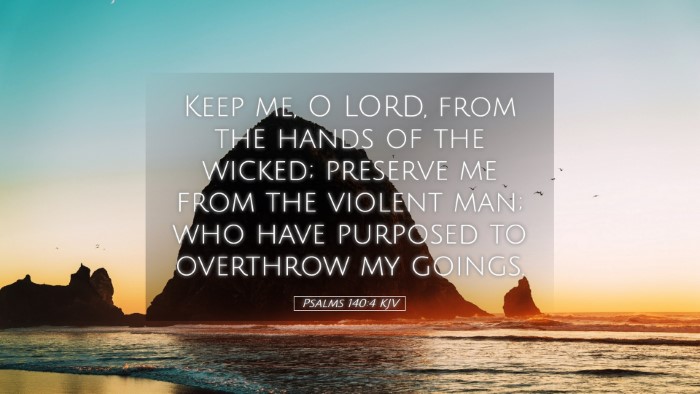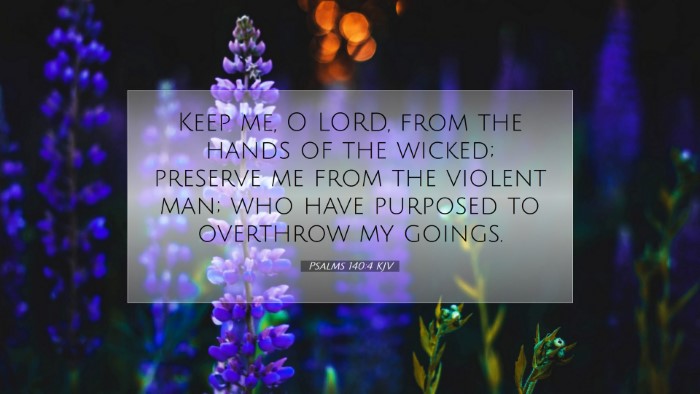Commentary on Psalms 140:4
Verse Overview
Psalms 140:4 states, "Keep me, O Lord, from the hands of the wicked; preserve me from violent men, who plan to make my steps stumble." This verse reveals a deep reliance on God for protection against malevolent forces and the dangers that arise from human wickedness.
Contextual Background
The Book of Psalms is a collection of songs and prayers reflecting various aspects of the human experience in relation to God. Psalms, attributed largely to David, often convey themes of lament, praise, thanksgiving, and supplication. The setting of Psalm 140, in particular, corresponds to periods of conflict in David’s life, where he faced threats from adversaries.
Exegesis of Psalms 140:4
Matthew Henry’s Commentary:
Matthew Henry emphasizes the earnestness of the psalmist's plea for divine protection. He articulates that wickedness is an ever-present threat, manifesting through 'violent men' intent on causing harm. Henry points out that the psalmist's request is not merely for deliverance from physical danger but for spiritual defense against the temptations that can accompany such trials.
Albert Barnes’ Notes:
Barnes offers insights into the nature of the 'hands of the wicked,' highlighting that they can be both literal assailants and metaphorical spiritual enemies. He notes that the 'steps' represent the guidance one seeks in life, indicating that the way one walks—both morally and spiritually—can easily be led astray by opposition. Barnes stresses the importance of remaining steadfast in prayer and reliance on God during such adversities.
Adam Clarke's Commentary:
Clarke discusses the dual aspects of the prayer: preservation from external danger and the internal struggle against fear and doubt. He connects the idea of being 'kept' by the Lord to the covenant relationship believers share with God, suggesting that divine watchfulness is essential for one’s spiritual journey. Clarke also poignantly remarks that this verse reflects an understanding of the human condition that is prone to stumble when not anchored by faith.
Theological Insights
- The Nature of Divine Protection: The plea for protection from 'violent men' symbolizes a broader theological principle that acknowledges human frailty and the omnipresent threats faced in a fallen world.
- The Importance of Vigilance: This verse serves as a reminder of the need to remain vigilant against the schemes of the wicked, underscoring both physical and spiritual stakes.
- The Role of Prayer: The emphasis on supplication reveals the essential nature of communication with God in moments of potential harm or moral peril.
- Christian Identity: The psalmist’s reliance on God encapsulates the identity of believers as dependent upon divine assistance in their spiritual walk.
Practical Applications
This verse invites pastors, students, and theologians to reflect on several practical aspects of faith:
- Devotion to Prayer: The importance of consistent prayer highlighting the necessity of seeking divine guidance and protection.
- Seeking Accountability: Understanding the communal aspect of faith can help in providing support against influences that may lead one astray.
- Teaching on Spiritual Warfare: Encouraging the congregation to be aware of spiritual battles and the need for God's armor, as illustrated in Ephesians 6.
- Empathy for Others: Recognizing that many face adversities similar to those described in the psalm and cultivating a ministry that addresses these real-life challenges.
Conclusion
Psalms 140:4 offers a profound insight into the nature of faith amid adversity. The verses remind believers of the constant vigilance required in their spiritual journey and the assurance that God is a steadfast protector. By meditating upon this psalm, individuals can deepen their understanding of divine providence and personal responsibility in the face of evil.


